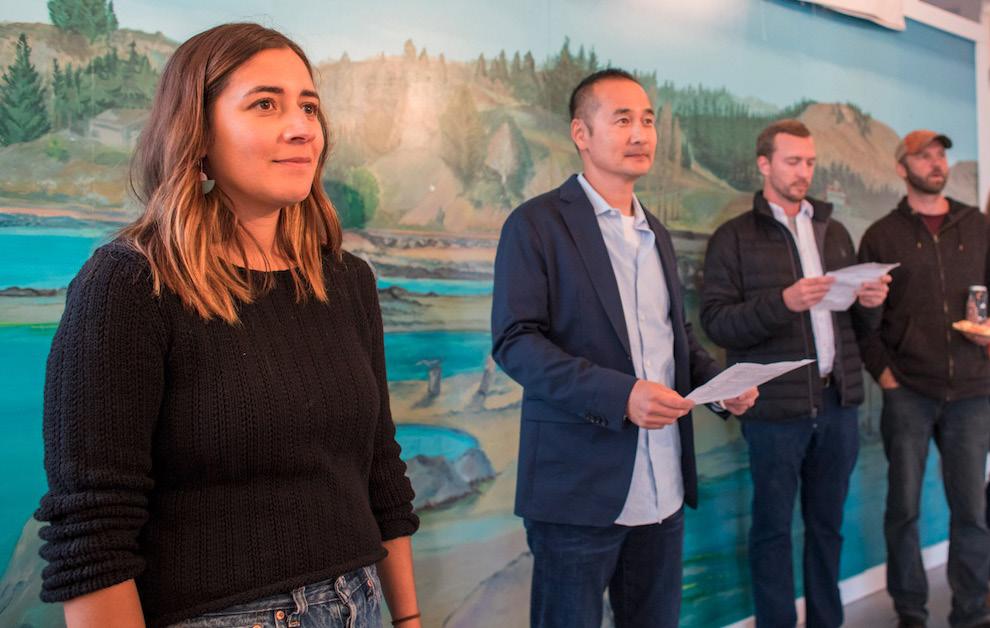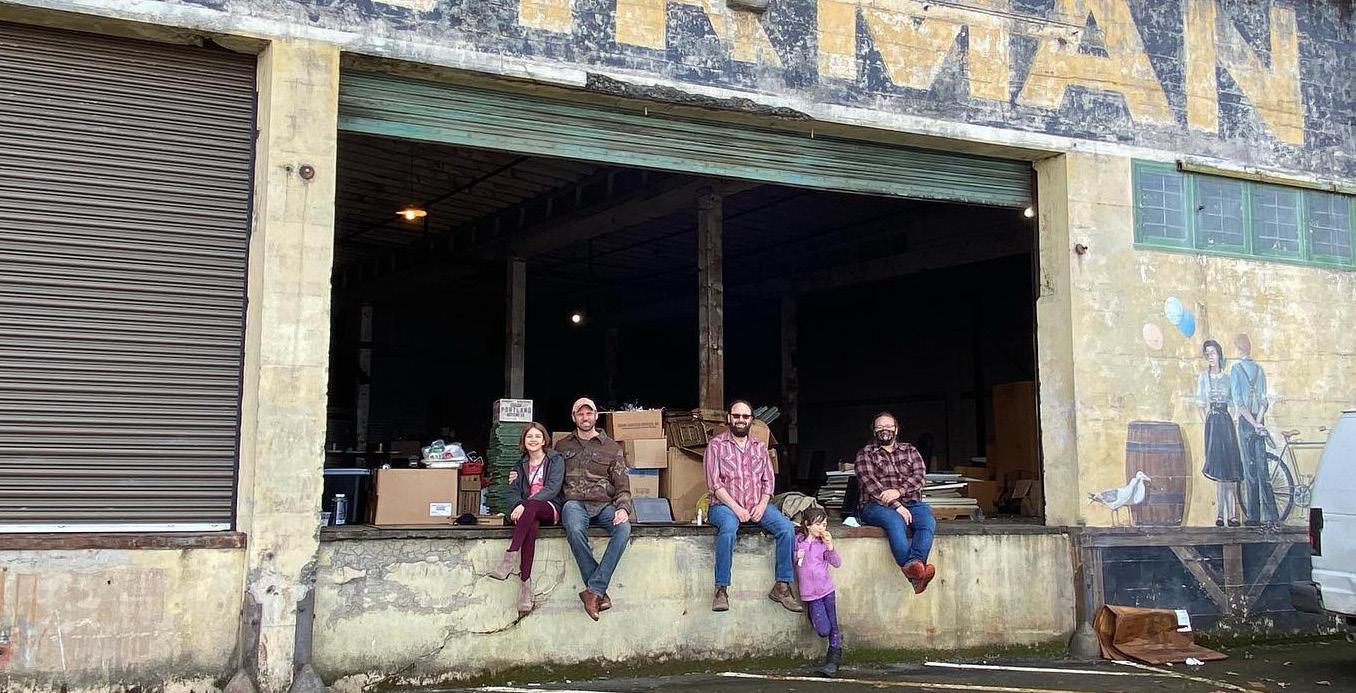
4 minute read
From Food Trail to a Food Innovation Center
Collaborative Partnerships Develop Pathways for Needed Resources
In February of 2017, 80 individuals from as many food businesses gathered in Tillamook for a culinary/agritourism workshop with Travel Oregon. Over two days of discussion and hands-on activities, the group decided that a food trail was the best way to build a collaborative marketing effort, managed and supported by Tillamook Coast Visitors Association (TCVA), with funding assistance from Cannon Beach Chamber of Commerce and Lincoln City Visitors Bureau.
Advertisement
After several months of development, the North Coast Food Trail was launched in March, 2018 with sixty members representing farms, fisheries, restaurants, experiences, farmers markets and lodging. It was quickly successful: In late fall of 2019, the editors of Sunset Magazine named it the “best foodie trip” in their annual travel awards issue. Now completing its fourth year, the food trail has 80 members and extends from Astoria to Neskowin (Lincoln City became part of the Central Coast Food Trail in 2020).
“From a tourism perspective – and as an advocate for small businesses on the coast - I’m thrilled by the success of the North Coast Food Trail,” said Nan Devlin, executive director of TCVA. “Yet it was the conversations that took place between farmers, fishers, chefs and restaurant owners during the initial culinary/ agritourism workshop that got me thinking about the needs of our producers and what TCVA could do to help.”
In 2019, TCVA was awarded a Business Oregon Rural Opportunity Initiative (ROI) grant to explore those needs and the interest among small food businesses – that mostly worked in silos – about other collaborative programs that could assist them. A second ROI grant the following year dove deeper into industry data–logistics of delivery and cost of creating a food hub.
During these two grant rounds, TCVA sponsored two food producer meetings hosted by Food Roots, a nonprofit in Tillamook that supports local farmers and fishers. Panels of speakers expressed needs for facilities, workforce training, and expansion of markets. Buyers and sellers did a “speed dating” hour, and local food and beverage was shared.
At a producers event in Garibaldi with buyers and sellers of local foods: Lauren Sorg, Food Roots; Jeff Wong, CS Fishery; Tyson Rasor, EcoTrust; and Jared Gardner, Nehalem River Ranch.
At the loading dock of the building that will soon become the Astoria Food Hub: Jared Gardner, Nehalem River Ranch; Warren Neth, Astoria Food Hub Director of Engagement; and Corey Omey, EMA Architecture.
While the ROI studies were underway, the Port of Garibaldi, Columbia Pacific Regional Economic Development District (ColPac), Rural Development Initiatives, Economic Development Council of Tillamook County and EcoTrust developed a Seafood Value Chain report. This study, funded by The Ford Family Foundation, explored needs of small commercial fisheries, including cold storage, paths to ownership, access to capital and expanding markets.
“Even though Oregon’s north coast is rich in bounty – seafood, produce, value-add products, beverages – there is a lack of muchneeded facilities available to support small producers, such as a shared commercial kitchen, cold storage, seafood processing equipment, food delivery system, and business support, such as training and mentorship,” said Devlin.
In 2020, Col-Pac was awarded a $350,000 grant from the USDA’s Rural Food Systems Program. A work group formed to create a database of food producers in Tillamook, Clatsop and Columbia counties, and gain a greater understanding of wholesale markets, seasonal products and ability to meet demand. And Jared Gardner, owner of Nehalem River Ranch, approached farmers and producers in his local area to see how they could improve delivery efficiencies. Using his own delivery truck, he aggregated products from multiple beef producers and provided service to several restaurants and markets. Meanwhile, Food Roots received two grants to purchase a refrigerated van, and contracted with Gardner to pick up and deliver fresh food sales from Food Roots’ farm store as well as North Coast Food Web’s orders in Clatsop County. Then in early 2021, Gardner partnered with Fort George Brewery to purchase a building on Astoria’s waterfront, which is being remodeled into food hub, with cold storage, commercial kitchen and storefront.

In June 2021, TCVA gathered a group of community leaders and food business owners to discuss an upcoming program with Business Oregon, a series of statewide Innovation Hubs in traded products. Could this be a pathway to developing the needed resources for our food businesses? The group agreed it could, and set forth planning for that outcome.
In October, TCVA received a third ROI grant to develop a business and financial plan for food and fish processing centers, commercial kitchens, cold storage, food hub, and training center. This will serve the state’s north coast region, and talks are underway with Oregon RAIN to include connections to a seafood center in Newport.
“People ask me what tourism has to do with a food innovation center, and I tell them it’s strongly connected to our hospitality businesses and their local food suppliers,” said Devlin. “Our food producers need our support to grow and thrive, right along with our tourism industry. It goes hand-in-hand.” TILLAMOOK COAST VISITORS










